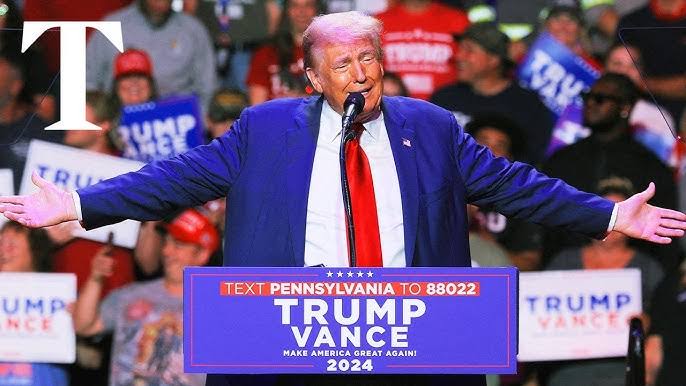In a few days, Americans will cast their votes to determine who will lead the world’s most powerful nation for the next four years. While this decision belongs to American citizens, its ramifications will be felt across the globe. The outcome of the U.S. presidential election will have significant effects on world politics, security, and economies, making it a concern for all continents, each grappling with its own challenges.
From a political, socioeconomic, and security perspective, it is evident that the world needs a strong, decisive leader—someone whose influence extends beyond their borders. A leader capable of negotiating peace, fostering cooperation, and guiding nations toward mutual prosperity. Considering this need for global leadership, attention turns to the United States. The individual who assumes the U.S. presidency must not be an untested figure but someone with a proven track record, a leader whose voice commands respect on the international stage.
In the current global climate, peace is paramount. Nations are experiencing economic hardships, wars, and rising insecurity. Lives are being lost daily, and without a strong peacemaker, the prospect of stability seems distant. Fortunately, the U.S. presidential election offers a unique opportunity for change, and the world is watching closely, recognizing how crucial this moment is.
The purpose of this write-up is to alert other regions of the world to the dangers of remaining indifferent to the U.S. election. It highlights the necessity for global stakeholders to engage, albeit within the confines of international law and without infringing on the rights of American citizens. The aim is to encourage these global actors to influence the election’s outcome in ways that align with the broader interests of global peace and stability.
The American presidency holds global significance. Throughout history, no major conflict has lacked external influence, and often, these influences are driven by economic interests. Powerful nations, particularly those with military industries, tend to have a vested interest in conflicts, whether for access to natural resources or to sell arms and military equipment. America has been a notable player in such international engagements, with its role in wars often tied to both strategic and economic incentives.
Between the two main candidates, Kamala Harris and Donald Trump, the latter stands out as a tested and experienced leader. Trump’s four years in office demonstrated his suitability for this demanding role. Unlike his predecessors, Trump sought to fund his administration through economic growth, not war profiteering. He avoided escalating international conflicts and prioritized developing other sectors of the American economy. During his first six months in office, over 150,000 Americans gained employment, a testament to his focus on domestic economic growth.
Trump’s foreign policy legacy is particularly notable in his approach to military engagement. He significantly reduced U.S. involvement in foreign wars, bringing American troops back home, and focused on diplomatic efforts to resolve conflicts. His strong relationship with Russian President Vladimir Putin ensured peace between Russia and Ukraine during his term, in contrast to the ongoing war that erupted after his presidency. Under Trump’s leadership, NATO’s involvement in Ukraine was restrained, avoiding the devastating conflict that has since unfolded.
Trump’s achievements extended to Asia, where he successfully mediated peace between North and South Korea. His diplomatic efforts ended a 55-year conflict, reuniting families separated for decades. South Korea’s foreign minister praised Trump for his extraordinary leadership, describing him as a “rescuer.” In addition, Trump cautioned China against igniting conflict, while his decisive actions in Syria, such as airstrikes in response to attacks on civilians, demonstrated his willingness to act when necessary.
Trump’s Middle East policy also brought relative calm to the region. The conflict between Israel and Palestine was kept under control throughout his tenure, preventing the widespread violence that has since escalated. His ability to negotiate with both sides ensured that lives were saved and properties preserved. Today, however, the situation has deteriorated, with ongoing conflicts claiming lives and causing immense destruction.
Africa, too, is facing its share of turmoil, with terrorism and insurgencies rampant across the continent. The economic situation in many African nations is dire, with instability further compounding the region’s problems. Trump’s approach to foreign policy, which focused on non-intervention and promoting peace, could provide a pathway to stability for African nations caught in the crossfire of violence and economic downturns.
In conclusion, Donald Trump’s potential return to the White House offers hope for global peace and economic recovery. His previous tenure demonstrated his ability to lead America toward prosperity while also promoting peace on the world stage. As Americans prepare to vote, the world holds its breath, knowing that the outcome will shape the future of global politics, security, and economic stability. Now, more than ever, a strong leader like Trump may be the key to restoring order in a chaotic world.




